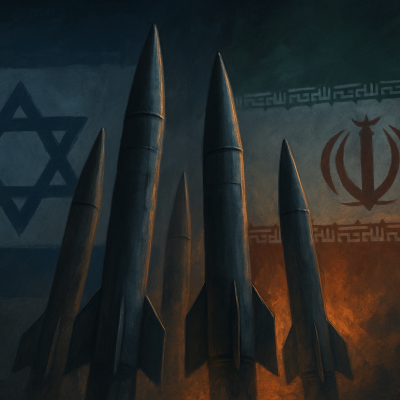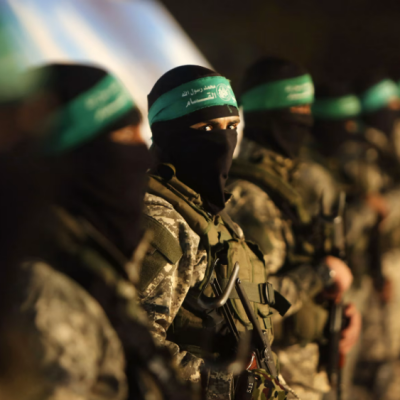Introduction
Six years after the fall of Muammar Gadhafi, Libya remains in a chaotic state. The United Nations-backed government struggles to exert control over territory held by rival factions, intensifying geographical and political divisions between the East, West, and South. Terrorist groups and armed militias exploit the turmoil, using the nation as a base for radicalization and organized crime, and pose a threat to the region and beyond.
Firstly: Repercussions of Arab Spring:
- Politically/ economic
- Governments of some countries in the Middle East and North Africa changed, also imposed several reforms and other changes.
- Chance of political Islam gave predominance in some countries of the region to prove its failure to manage its affairs in a very short time.
- Led to more foreign political and military interventions.
- Led to significant changes in the balance of power.
- Opened the field of multilateralism to impose itself in the Middle East and North Africa.
- Proved the real failure of the common foreign and security policy of the European Union to the region, where failed to improve security in the southern Mediterranean region or to ensure the protection of their interests, while conditions require the involvement of Europe and the international community more seriously with Libya and Egypt and Tunisia with expanded economic and political assistance.
- Security
- Increased frequency of flare-up of sectarian seditions and civil wars.
- Increasing transnational crimes
- The spread of terrorism where it was classification (14) new terrorist organization in the region.
Secondly: Libya after the revolution of February 2011
The Libyan Revolution erupted on 17 February 2011 affected by revolutions in Tunisia and Egypt, which toppled two presidents Ben Ali and Mubarak. And with Qadhafi forces successes in front of rebels and dissidents from his armed forces, NATO’s intervention in March 2011 with unprecedented speed.
To turn the balance of things in favor of the rebels, and declare against the Libyan East and Tripoli during August, then control of the last bastions of Gaddafi and kill him in Sirte on October 20.
All this has led to fragmentation of Libyan forces to several armed militias as well as the rebels to form the rival faction’s difficult reunification.
No doubt that Libya poses real challenges for shipping, not least because of maritime domain confusion arising from its current governance (or lack thereof in certain areas). Politically, Libya remains a tribal country (in much the same way as Somalia is clan-based) split in two, although realistically, the division is that the EU- and UN-backed Government of National Accord (GNA) also known as the Unity Government, led by Prime Minister Sarraj hold around one third of the country while the rival, House of Representatives (HoR) controls around two thirds in the East of the country.
The HoR, fronted by Field Marshal Khalifa Haftar, is not recognised by Western governments, but increasingly, he has been courted by a variety of countries including the UK, US and Russia. Haftar has his eyes on a secure powerbase; his militias and Libyan National Army currently controls the Oil Crescent, ceding management to the independent National Oil Company.
Unfortunately, he has expressed limited interest in peace negotiations with the GNA, leaving the country split politically. This means that shipping companies have to deal with each government, depending on which ports they work from and, increasingly, the risk of vessel seizure by one or other government or the militias which work for them.
August 27th saw the arrest of the MT Levante, a Greek-owned tanker stopped by the GNA-backed Libyan Coast Guard, who accused it of being involved in fuel smuggling. The irony is that fuel smuggling has long been ignored by local authorities and the Coast Guard; some even accuse them of being complicit in the practice. It’s certainly been a revenue source for many years prior to mass migration from Libyan ports. August 30th, meanwhile, saw the Libyan Coast Guard arrest a Tanzanian-flagged tanker called Rex, on suspicion of fuel smuggling and a Maltese trawler which was arrested for allegedly fishing illegally in Libyan waters. It’s clear that Libya is now beginning to get very serious about its TTW, and all CSOs should take note.
With the advent of mass Mediterranean migration, Libyan militias and smugglers cornered the market. However, this brought unwanted attention to fuel smuggling and fights between gangs, often leading to the hijacking of migrants, were not uncommon. Currently, the most popular ports for migrant gangs to leave from are Sabratha and Zawiya. Both are nominally under the control of the GNA but, in the case of Zawiya, actual day-to-day control is handled by militias and armed gangs.
Following the establishment of a Search and Rescue Exclusion Zone in Libya’s territorial waters (TTW) by the GNA, the Libyan Coast Guard immediately threatened NGO rescue missions and warned them that if they entered the area, they would be fired on. This in turn led to several charities ending their work in the Mediterranean.
Coincidentally, the number of migrants attempting to cross to Italy fell dramatically.
New information suggests that significant payments have been made to Libyan militia groups to ensure migrants do not make the crossing. Although unconfirmed, it is highly likely that this is the case. Unconfirmed media reports detail medical and humanitarian supplies reaching areas where these things are generally very rare, as well as meetings between Italian officials and militia leaders.
With the migrant problem on the back burner, even temporarily, this means the fuel smugglers can return to business. The problem for the shipping industry is that the gangs involved in this are lethal and liable to shoot first and ask questions later. Gunfights at sea between rival gangs are not uncommon and add another level of risk for vessels transiting Libya’s TTW.
These risks are generally not normally featured in route risk assessments, but members should ensure that their vessels have all correct permissions and paperwork to enter Libyan waters and, importantly, heed any warnings from vessels claiming to be Libyan Coast Guard. The risk of arrest is moderate, provided all your paperwork is in order, but it is very real, as the crews of three vessels can attest.
Thirdly: until 2017, we can find in Libya three major domestic parties, four regional actors, as well as the important international parties may seek to intervene in the crisis in Libya:
- Internally
- In Tripoli, we find the Government of National Accord of the Presidential Council headed by “Fayez Al-Sarraj”, Supreme Council of State (output Skhirat Agreement signed on December 17, 2015), the Supreme Council is consultative body in Tripoli also consist of (145) members, representatives from the predominately Muslim Brotherhood and other Islamic factions, and following them the armed militias of the Islamic-minded (Fajr Libya), then Salvation Government Under “Khalifa al-Ghawil” arising from the National Conference, outgoing his mandate and loyal to Muslim Brotherhood Group, this Government returned to impose its presence in the wake of her loyal militiamen on a number of Government Headquarters was snatched from the control of Seraj Government.
- In the East (Tobruk) find the three main bodies, Libyan House of Representatives (Parliament) under the Chancellor “Aguila Saleh” internationally recognized, which led to the interim Government headed by “Abdullah al-Thani” Libyan National Army led by General “Khalifa Haftar”.
- And outside the political parties find organization ISIS and terrorist groups loyal to him for example, as well as Al Qaeda.
- Regionally
- Egypt and the United Arab Emirates supports the Libyan National Army and elected Parliament.
- Qatar supports the Presidential Council and the Islamic militia.
- Turkey, which supports the militia in Misrata and in harmony with Qatar and Turkey play a big role in the scene complexity.
- Then Tunisia and Algeria tend to reconciliation.
- Internationally:
Russia against the European Union (Italy, France and Britain) to deal with the crisis of illegal immigration and terrorism, as well as the United States.
Fourthly: EU, NATO and Libya now:
The situation in Libya turned into a broader security crisis in the Sahel region and desert, amid European modes of transmission of violence and unrest within Europe itself, especially that the North Africa region is the real southern border of the European continent… Security in the region has become a priority, not marginal concerns for Europe, as compared to the rest of the Middle East, especially after recent attacks in France, Germany, and Belgium to establish overlapping nature of the security of both the southern and Northern Mediterranean, mostly carried out by people of Arab descent from North Africa, Were recruited to join the ranks of ISIS in Syria. The Mediterranean and its marine passageways remain an open field needs to be secured.
Fifthly: the critical evolution in the political track eased the likelihood of the military escalation:
- Elements of the Libyan crisis (internally and regionally) turned from parties in the crisis to actors to resolve it, starting from the reception of the President of the Presidential Council “Fayez Al-Sarraj” in Cairo mid-January is the worst enemies politically Haftar, Followed by the statement by Sarraj in meeting of the high-level Committee of Heads of State of the African Union and neighboring countries on Libya end of January, he said “tribute to the Libyan army fighting efforts «this Regulation [ISIS] and his supporters in Benghazi, now near completely edited them”, I ask the African Union and the international community to take immediate action to lift the arms embargo against Libya, and technical assistance for the training and upgrading of military and security.”
- During that period were the 10th ministerial meeting Libya neighbors in Cairo on January 21, 2017, Libyan Summit in Cairo on 13 and 14 February attended by Sarraj and Haftar but insisted to didn’t meet even once, Then the Egyptian Foreign Minister “Sameh Shoukry” headed on February 19 to Tunisia to participate in a meeting of Foreign Ministers of Egypt and Tunisia and Algeria to prepare for a tripartite summit from the initiative by the President of Tunisia “Beji Caid Essebsi” on Libya entitled «political solution through dialogue and national reconciliation in Libya.
- This was preceded by the United Nations resolution aimed at resolving the crisis through reconciliation between the Libyan parties, insist on the appointment of Special Representative of the Secretary-General of the United Nations, approving the possibility of creating a joint force to enforce peace in the region, Arm and move the national army is prohibited to non-controlled expansion against his opponents internationally recognized Presidential Council, however, the strongly negative effect of defeating terrorist organizations in Libya.
- Arabic League succeeded in appointing a Special Envoy in Libya deals with all parties in the crisis.
- A significant role for the African Union did not issue compared to other actors in the crisis.
- Although Egypt continuation to support Haftar and bet on his greater political role in the future, but that Egypt did not insisting on eradicating Islamists in Libya as it was in the past, Perhaps due to understanding Cairo difficulty of Haftar forces completely control on western Libya, especially with the continued Security Council embargo on arming his forces, And also because of the strength of the armed groups supportive of the Government of National Accord in the West, foremost Misrata militia (Northwest of the country).
Sixthly: the near future in Libya:
- European vision consensus but moral and material support for the Egyptian vision now proclaimed waiting that “the highest priority to Egypt now maintain a unified Libya, neutralize and overcome a speech split the country between the two East and West”, which seriously affect the security and stability inside of Libya by the security and safety of the Libyan borders and neighboring countries.
- With the continued attitude towards compatibility, Libyan Islamic factions wait for a response, as Justice and Construction Party (Muslim Brotherhood) and leadership of the Salafi Leader and Islamic Homeland Party “Abdelhakim Belhadj” for this Egyptian position “modified” and supports Egyptian efforts in this direction, which may worry stakeholders and individual agendas.
- based support to Trump management for Libyan national army led by “Haftar” as the Libyan military National Foundation, and the army is officially recognized, which may happen balance in Haftar relationships with Moscow.
- The case the need for military intervention by ground forces will avoid any foreign intervention, as expect the reluctance of Egypt and Algeria and Tunisia have forces permanently on Libyan territory, you may prefer to provide full support for the Libyan national army to eradicate terrorism.
Seventhly: recommendations:
- The need for joint action to resolve the Libyan crisis through key principles is to support and recognize of the will of the people of Libya (represented in the elected House of Representatives), And maintain the security and stability of Libya and territorial integrity and rejected outside interference in the internal affairs of Libya, and the adoption of a political solution as the only one way to restore State authority and keep the cohesion the Libyan people in various sections, and enable the Libyan people to preserve its riches and adapted for rebuilding State institutions.
- Continue to support the Skhirat Agreement, despite the expiry of the validity, through coordination between the Libyan Presidential Council and the House of representatives and continued political dialogue among all parties and provide high over Libya’s interest, in order to adopt and implement a comprehensive political settlement and national reconciliation government capable of realizing the aspirations of the Libyan people and alleviate the suffering.
- The need for the reservation of Libyan neighbors on the intentions of the presence of military bases, whether European or American or Russian in Libya, especially at the present time to reduce any undesirable interference in the current time.
- The African Union calculated to processing rapid intervention force linked to United Nations resolutions and the possibility of African American leadership US AfrCom intervention in the landscape.
- Consensus mechanism to out of the current blockage is activated to run through the steps clear of constitutional amendments compatible needed and during the parliamentary and presidential elections as soon as possible, with all the major incumbents in Libya, and until the end of the transitional period.
- The need for the parties to compromise solutions maintain the unity of the State and Libyan nationality, equitable distribution of resources, and rebuild national State institutions in Libya.
- The insistence on supporting the efforts of the United Nations envoy and the envoy of the League of Arab States to Libya and permanent coordination with them.
- Work on strengthening the capacity of the Libyan army regulars to build capacities and to eliminate terrorism and defeat his will, as well as work to resolve the issue of armed militias in Libya according to clear controls compatibility.
By: Sayed Ghoneim
Chairman, Institute for Global Security & Defence Affairs (IGSDA)





